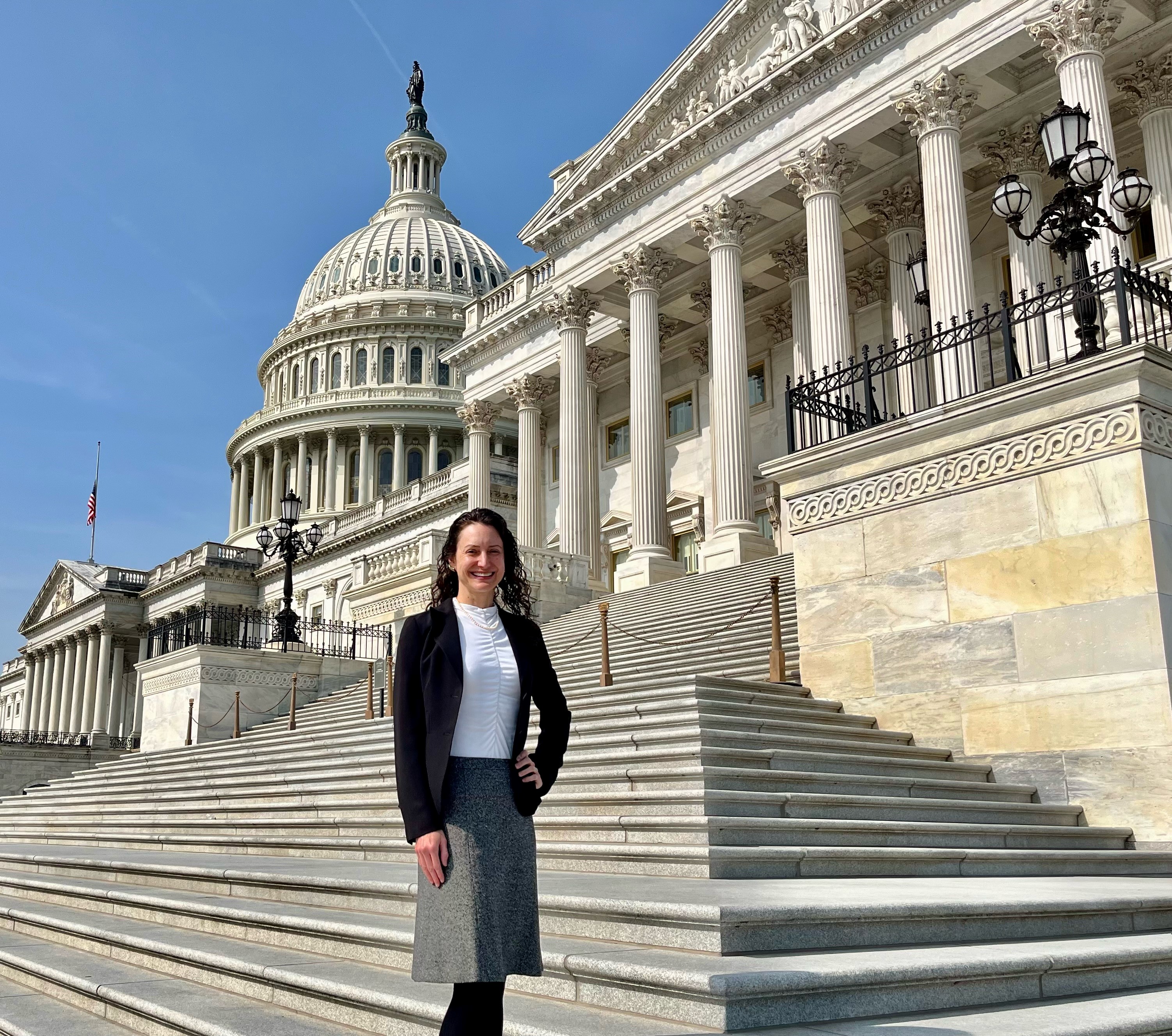A day of education & advocacy: Time well spent on Capitol Hill
Facebook Twitter LinkedIn Email As a clinical pharmacist in a Ryan White HIV Program clinic, I know that funding federal HIV programs is critical to the people with HIV we serve and to advancing our overall goals for U.S. public health, including ending HIV as an epidemic. It’s a proven return on investment: Fully financed HIV services keep people healthy, promote public health by reducing HIV transmissions, and can address workforce shortages and, over the long term, will reduce health care expenditures.
As a clinical pharmacist in a Ryan White HIV Program clinic, I know that funding federal HIV programs is critical to the people with HIV we serve and to advancing our overall goals for U.S. public health, including ending HIV as an epidemic. It’s a proven return on investment: Fully financed HIV services keep people healthy, promote public health by reducing HIV transmissions, and can address workforce shortages and, over the long term, will reduce health care expenditures.
On May 11, I participated in HIVMA’s Advocacy Day on Capitol Hill to educate policymakers on the value of investing in HIV programs. The visits were timely and important as congressional leaders discuss serious cuts to the federal budget.
I met with health policy advisors for my Florida Republican and Democratic senators and representatives. I presented a simple strategy to support the American people. We need funding for 1) the Ryan White HIV/AIDS Program, 2) the Bio-Preparedness Workforce Pilot Program and 3) a national pre-exposure prophylaxis program.
I started each meeting by highlighting President Trump’s 2019 initiative — Ending the HIV Epidemic — to cut new HIV infections nationwide 90% by 2030. I highlighted that while this is an achievable goal, we will need to bolster HIV care and treatment, address the shortage of infectious diseases and HIV providers, and take courageous steps in HIV prevention to make it reality.
I educated staffers on the Ryan White HIV/AIDS Program and how this comprehensive, effective and dividend-paying HIV treatment platform was established in 1990 with bipartisan support. I shared that over the past 10 years, viral suppression rates in Ryan White clinics improved from 70% to 90% despite largely stagnant funding and that patients with controlled HIV cannot transmit the virus.
I learned that many health care professionals are communicating with their members of Congress about the post-pandemic challenges they face, highlighting the importance of my visits as an ID health care professional. I educated them on the unique challenges the ID and HIV workforce face and shared that nearly 80% of U.S. counties do not have a single ID physician, underscoring that now is the time to fund the Bio-Preparedness Workforce Pilot Program to help rebuild the ID and HIV workforce.
Finally, I urged them to support a national PrEP program and educated them on why this should be a priority. We know PrEP works because people taking PrEP do not acquire HIV. We know PrEP is affordable because PrEP medication costs as little as $26 per month. Although PrEP is effective and inexpensive, the majority of Americans who can benefit from PrEP do not have access. This country faces approximately 35,000 new HIV diagnoses each year. Each new HIV case costs the economy $500,000 per person over their lifetime; therefore, the collective additional cost to the economy for new HIV infections is $17.5 billion per year. When we don’t pay for HIV prevention, we are overspending.
On Capitol Hill, I learned that my perspective as an HIV provider is meaningful to my country’s leaders. I was pleased to meet a receptive and informed audience on both sides of the aisle. Ending the HIV epidemic is not a partisan issue. Even with the political division in our country, Republicans and Democrats have an opportunity to work together to achieve a milestone in public health. Members of Congress need to know what it’s like for people in their districts who live with HIV. They need to know about the challenges facing HIV care providers on the ground. And they need to know that the solutions to this epidemic are available and they have the power to provide them.
I’m calling out to all HIV care providers: Your representatives need to hear from you — and they’re ready to listen. To learn how to get involved and become a key player in IDSA and HIVMA advocacy, join the Member Advocacy Program now.


